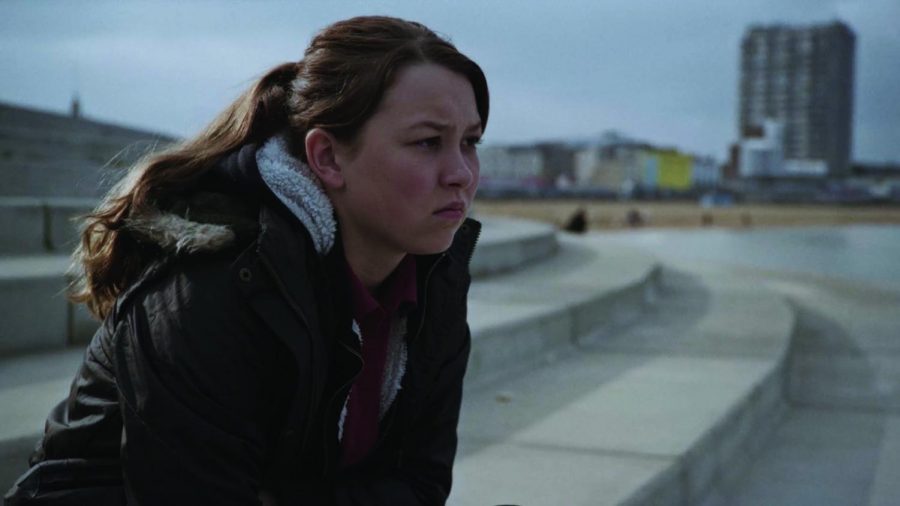“Jellyfish” had its world premiere at the Tribeca Festival’s Viewpoints selection this year. Starring Liv Hill, Sinead Matthews, Cyril Nri and Angus Barnett and directed by first time feature filmmaker James Gardner, “Jellyfish” offers an introspective look into growing up too fast and the apathy of those who let others slip through the cracks.
“Jellyfish” follows Sarah Taylor (Liv Hill), a fifteen-year-old who takes care of her younger brother, sister and manic-depressive mother. She’s callous to the world around her, finding the pursuits of those who do not have to provide for another trivial. However, her drama teacher believes she can channel this vitriol disdain into stand-up comedy, a passion in which Sarah discovers herself, as her world continues to tumble down around her.
The stunning Liv Hill is a revelation in the role as more emotions are conveyed in her eyes than can be portrayed through words in a script. The power of her performance causes audiences to feel what she feels in the most painful way, as she helplessly watches her barely-held-together life fall apart. Audiences can feel the conflicted emotions she holds for her negligent mother through the small tightening of her mouth.
Especially interesting was the contradiction between comedy and tragedy within the film. It is impossible to dispute that Sarah’s story is a tragedy but despite it all, she finds solace in comedy, in making light of her situation. But there lies a point in which comedy can not mask what is really happening and it is then that she finally breaks down.
For these reasons, the film is not a happy, feel-good one, but it is one with a perspective. Sarah is a child whose pain goes unnoticed until the very end of the film, when she lets everyone see that side of her. However, before she tells them directly, nobody had ever bothered to look into her life or ask her why she acted the way she did, why she was late and so on. As is the case with many children across the world, and not just in the United Kingdom, where this film takes place. As the Tribeca Festival predicted in its slating, “Jellyfish” offers its audiences a different viewpoint, and challenges them to listen to the unheard stories that surround them.
There is no happy ending to the film. There is no neat, tight wrap-up with a positive future ahead. However, there is a glimmer of hope that somebody does care, that somebody does finally see her and will look out for her as a child should be. And maybe sometimes that is all we really need; to be seen and cared for.










